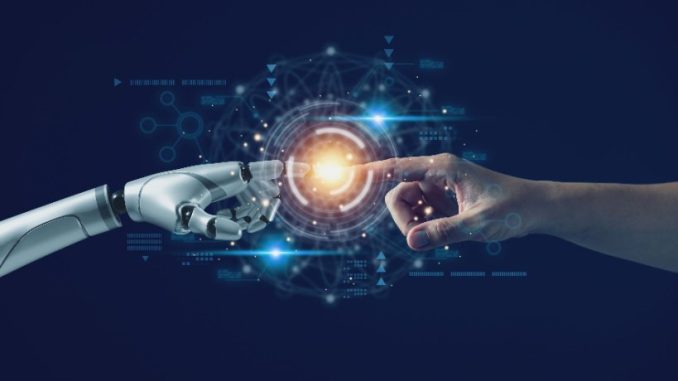
When human intelligence is simulated by machines – including learning, reasoning, thinking and deciding upon solutions to problems as well as perception and decision making in machines – this is called AI. AI systems analyse massive amounts of data, recognise patterns, forecast future trends and take action or adjust their own operation in real-time without human input which gives them intelligence as if they were humanly aware but most and sundry day-to-day functions are carried out by a statistical entity that can judge various possibilities and make decisions accordingly.
From machine learning algorithms to intelligent automation and cognitive computing AI has the potential to revolutionize processes, enhance decision-making and open up new frontiers within any particular industry. This article examines some recent AI innovations, their influence on various domains and what role AI will play in the future of technology.
-
What is Artificial Intelligence?
Artificial intelligence refers to the simulation of human intelligence processes by machines, including learning, reasoning, problem-solving (although today’s computers have problem solving down pat but future large-area, multi-core chips may take over completely its as a field for decades why silicon rivals wait in the wings). AI systems analyze vast quantities of data, identify patterns, make predictions, and adapt to feedback. This in turn leads to intelligent automated optimization of decision making and even autonomous decisions themselves which is capable to act without any human intervention.
-
Learning and Deep Learning
The same thing goes for Machine Learning (ML) and Deep Learning (DL)—they’re just tools in AI. For example ML algorithms learn from labeled data sets where as DL algorithms use neural networks with multiple layers to process complex data and extract high-level features.
-
Natural Language Processing (NLP)
Natural Language Processing, a branch of AI, enables machines to read human speech, recognize written words and compose human language. NLP algorithms analyze text content, speech sounds, unstructured text to extract meaning, sentiment, intent and context for the content it is used in. Applications of NLP include voice interface helpers: chatbots, speech recognition programs which can be used fluently, and even machine translation of languages for some simple ideas.
-
Computer Vision and Image Recognition
Computer Vision refers to the development of AI systems with the ability to understand and interpret visual data from images or video. Image recognition algorithms recognize objects, patterns, faces, gestures and scenes in visual data, enabling applications such as facial recognition, object tracking/detection in images and movies, automotive autopilot systems, computer analysis of medical images or quality control for industry quality testing stations.
-
Reinforcement Learning Reinforcement Learning is one of AI learning paradigms in which agents learn through trial and error interactions to maximize rewards or achieve specific goals. Reinforcement learning algorithms, such as Deep Q-Networks (DQN) and Proximal Policy Optimization (PPO), are widely used in robotics, gaming, recommendation systems, and resource optimization.
-
AI in Healthcare With applications to medical diagnosis, personalized treatment planning, drug discovery and development, telemedicine, wearable health monitoring and predictive analytics, AI will drastically change what healthcare looks like. AI-powered medical imaging, predictive models for disease detection, virtual health assistants, and precision medicine are improving patient outcomes, reducing healthcare costs, and facilitating clinical decision-making.
-
AI in Finance AI technologies are used for fraud detection, risk assessment, algorithmic trading, credit ratings, customer service automation systems and financial recommendations, for example. In financial industry chatbots powered by AI, anti – money laundering technologies based on DNN modeling/techniques in combination with high-volume computing clusters or GPU acceleration services are transforming financial markets: not just the business but also customer experiences.
-
AI in Education AI is revolutionizing education with personalized learning platforms, adaptive assessments and tutoring systems, educational chat bots that can talk back to you as a student for tips on your homework or lecture content. In education, AI tools assess student performance, customize educational content to fit a student’s strengths and weaknesses, provide real-time feedback and assist teachers in giving students personalized learning experiences that suit not only what each individual needs but how they learn most effectively.
-
AI in Manufacturing and Industry 4.0 In manufacturing and industry, AI technologies such as predictive maintenance, smart sensors, robotics, autonomous vehicles and digital twins are driving efficiency, productivity levels and sustainability. AI-powered predictive maintenance can find equipment faults before they occur, while robotics and weeding machines streamline factory operations and cut down on costly stoppages in production.
Conclusion: Implications Ethical and Societal 10.
While AI innovations bring great possibilities, they also raise ethical and social implications related to privacy of data, the fairness of algorithms, transparency, accountability, employment displacement and the governance of AI. Ensuring that AI development is ethical, responsible deployment, transparent, and under human control are all essential when faced with these daunting challenges to get people’s trust for AI technologies.
Conclusion: Shaping the Future of Technology with AI
Artificial Intelligence stands at the forefront of technological breakthroughs, driving efficiency and change throughout industries. AI-powered solutions in healthcare, finance, education and manufacturing are changing processes, raising effectiveness, and opening big new opportunities for business and society. Adopting AI innovations means taking a balanced approach that emphasizes ethical AI technology development, takes on the implications society, creates cooperation between people and machines and brings about AI can offer the potential of living in a smarter future. By using AI in a responsible way, we still have control over today’s and tomorrow’s technologies. That is a future where technology serves people well. It increases their capabilities, enables them to grow to their full potential and makes a better world for all.